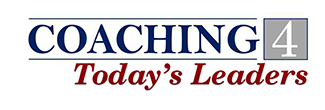
In a previous article, I introduced Aesha Tahir and her work helping deskbound professionals get unhunched. She spoke to our coaching students about how to incorporate movement and other healthy habits into our daily lives to counter the effects of being hunched over our desks and mobile devices.
As coaches, being hunched affects not only our posture and general physical health but how we show up for our clients. Without even realizing it, we end up missing a lot of what the client is saying to us, projecting the message that we’re not really listening or present.
ICF Core Competency 2 reminds us of the importance of self-awareness. We must strive to be aware of what we’re bringing into the coaching relationship—the beliefs and perspectives that have shaped us and how those show up, including through our posture and body language.
One thing that can hunch us is a lack of confidence. This is especially true for new coaches but can affect all of us at times. That pressure to be on, to be right, to be good. Think about a time when you felt that way. Really place yourself in the situation and mindset. Do you notice a physical shift where you shrink yourself by hunching your chest?
Another fascinating link between posture and confidence was popularized by Amy Cuddy and her research into power posing. Her key finding is that adopting expansive postures causes people to feel more powerful.
Have you ever tried striking a power pose before or during a coaching call? Have you experimented with other posture strategies like walking or standing while you coach? What is the effect on your coaching?
Unhunching our posture, our body language, and our being, opens us back up to receive verbal and nonverbal information from our clients. It also opens us to our own intuition, awareness, and curiosity.

 Coaches, Unhunch
Coaches, Unhunch